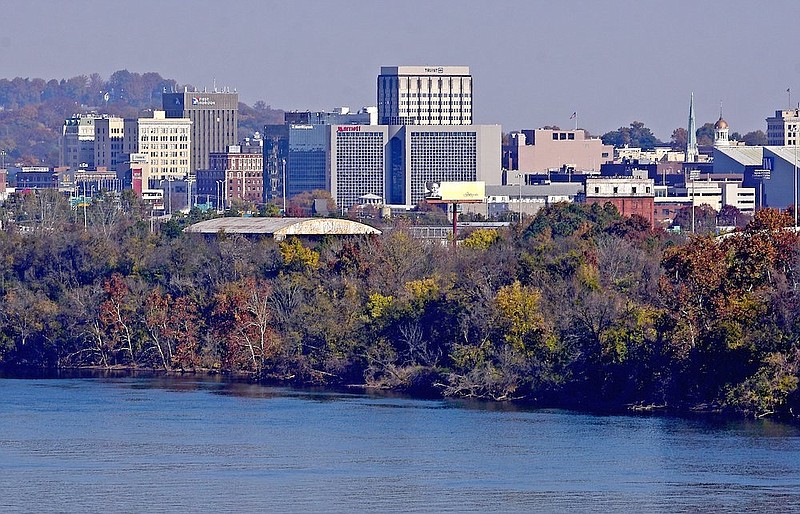A year after installing about 30 air quality sensors at local schools and community centers, the Chattanooga collaborative behind the pollution detection program learned Thursday it is getting a federal grant to more than triple the number of air sensors to expand the program across Hamilton County.
The U.S. Environmental Protection Agency is awarding $491,171 to the Enterprise Center in Chattanooga for its Chattanooga Leveling Environmental Equity Across Neighborhoods project. The project will add another 130 of the air quality sensors to provide even more real-time, localized data on air particulates and other pollutants to help improve the visibility of air pollution information.
Chattanooga was the only Tennessee project included in 132 monitoring programs picked to receive the funding as part of a $53.4 million nationwide initiative to enhance air quality monitoring in underserved and more polluted cities.
"These grants will give communities the tools they need to better understand air quality challenges in their neighborhoods," EPA Regional Administrator Daniel Blackman said in an announcement of the grant recipients. "EPA's investment in ARP (American Rescue Plan) funding will not only advance the agency's mobile air monitoring labs and air sensor loan programs but improve the agency's ability to support communities in need of short-term monitoring and air quality information."
Blackman said the new sensors will provide more granular understanding of air quality across Hamilton County communities that routinely rank at the bottom statewide for asthma, chronic illnesses and hospitalization.
Chattanooga was also chosen because of EPB's communitywide fiber optic network, which allows faster internet service for connections to all of the sensors, which are monitored regularly through the Chattanooga Smart Community Collaborative. The collaboration includes the Enterprise Center, UTC's Center for Urban Informatics and Progress, EPB and Hamilton County schools.
Live data visualization, health information and educational resources will be hosted publicly for residents, and sensor data will be imported into repositories, including Chattanooga's Open Data Portal for access by citizens, researchers and public health agencies.
"As a smart community, Chattanooga relies on data," Geoff Milliner, chief operating officer for the Enterprise Center, said in a telephone interview Thursday. "Better, more granular data can result in better outcomes, especially when it comes to the environment."
Chattanooga is one of only four cities in a collaborative US Ignite project, funded by the National Science Foundation. The project, begun by researchers at the University of Utah, is bringing a network of approximately 50 fine particulate matter air quality sensors online, creating a live map of air quality conditions across the city for local researchers, citizen scientists, students and other curious residents to utilize.
The project began as an effort to better understand the relationship between air pollution and incidence rates of COVID-19. Milliner said the first sensors were tested in early 2021, and the initial network of sensors was operational in November 2021.
Contact Dave Flessner at dflessner@timesfreepress.com or 423-757-6340. Follow him on Twitter @DFlessner1.
